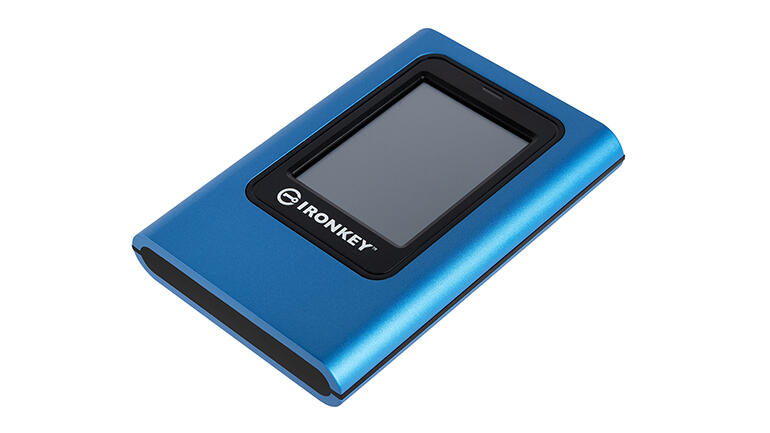'ZDNET Recommends': What exactly does it mean?
ZDNET's recommendations are based on many hours of testing, research, and comparison shopping. We gather data from the best available sources, including vendor and retailer listings as well as other relevant and independent reviews sites. And we pore over customer reviews to find out what matters to real people who already own and use the products and services we’re assessing.
When you click through from our site to a retailer and buy a product or service, we may earn affiliate commissions. This helps support our work, but does not affect what we cover or how, and it does not affect the price you pay. Neither ZDNET nor the author are compensated for these independent reviews. Indeed, we follow strict guidelines that ensure our editorial content is never influenced by advertisers.
ZDNET's editorial team writes on behalf of you, our reader. Our goal is to deliver the most accurate information and the most knowledgeable advice possible in order to help you make smarter buying decisions on tech gear and a wide array of products and services. Our editors thoroughly review and fact-check every article to ensure that our content meets the highest standards. If we have made an error or published misleading information, we will correct or clarify the article. If you see inaccuracies in our content, please report the mistake via this form.
Kingston IronKey Vault Privacy 80 External SSD, hands on: Secure, but sluggish and expensive


Kingston IronKey Vault Privacy 80
pros and cons
- Advanced security features
- Admin and user passwords
- Multiple password modes
- OS-independent
- Expensive
- Trades performance for security
Kingston's DataTraveler memory sticks are a popular option with many users who require encryption and password protection for important files, but its new IronKey Vault Privacy 80 External SSD (VP80ES) is in a different league altogether. This USB solid-state drive uses hardware-based encryption technology that was originally developed by IronKey specifically for US military and government organisations, before the company was acquired by Kingston in 2016.
Kingston IronKey Vault Privacy 80: An OS-independent hardware-encrypted external SSD (480GB-1.92TB) with a touch-screen interface.
Prices start at $289.99/£275.99 (inc. VAT) for a drive with 480GB of storage capacity, while the 960GB model costs $359.99/£338.39 and the top-end 1.92TB model costs $509.99/£482.39. That's considerably more expensive than a conventional SSD, although the IronKey is FIPS 197-certified, and provides XTS-AES 256-bit hardware encryption using a secure microprocessor that is Common Criteria EAL5+ certified.
Numeric PINs or passphrases are entered via the touch screen. After 15 incorrect entries, the drive is wiped (unless the administrator changes this setting).
Some drives that offer encryption require you to create and enter passwords using software that runs on the host PC, but the Vault Privacy 80's security features are entirely hardware based, and are controlled via a small touch-sensitive LCD display that's built into the drive itself. The resistive screen isn't as smoothly responsive as that of a smartphone or tablet, and Kingston recommends using a stylus to tap out your password on-screen, but you can use a finger as long as you're careful about tapping the correct keys.
The sheer range of security features does mean that getting started can be a little complicated, and the IronKey drive is perhaps best suited to larger organisations with dedicated IT staff who can administer the drives and roll them out to staff.
SEE: These are the cybersecurity threats of tomorrow that you should be thinking about today
The drive has a standard USB-C interface, and the first time you use the IronKey drive you can simply connect it to a computer -- PC, Mac, Linux or Chrome OS -- using the USB-C or USB-A cables included in the box. The drive will then prompt you to create an admin password. However, administrators or IT staff also have the option of creating an additional user password for a member of staff who is using the drive. Both passwords will unlock the drive, so this allows IT managers to unlock the drive with their admin password if any users forget their own passwords.
Administrators can also configure a variety of security features, including a choice of two different password modes, using either a numeric PIN, or a 'passphrase', which can be up to 64 characters long. A passphrase can also include spaces, allowing users to select song lyrics or other easily remembered phrases to unlock the drive. However, the drive's firmware is also designed to protect against 'brute force attacks' and will erase the drive if an incorrect PIN or passphrase is entered 15 times (administrators can also modify that figure if required).
Your data, encrypted and ready to travel securely.
The one downside to this high level of security is that the IronKey isn't the fastest solid-state drive available. Kingston quotes speeds of 250MB/s for both read and write performance, although our review unit actually recorded read and write speeds of 215MB/s and 200MB/s respectively. That's the sort of performance we might expect from a good hard drive, rather than an SSD, but some organisations may consider that trade-off acceptable in order to protect sensitive files and data.
Alternatively, if your storage requirements are more modest, then Kingston has also launched a memory stick called the IronKey Vault Privacy 50. Available with storage capacities ranging from 8GB to 256GB with a USB-A interface, the Vault Privacy 50 shares many of the same security features as the SSD unit reviewed here. However, the compact memory stick design means that it doesn't have a touch-screen display, instead relying on on-board software that runs on the host computer to configure security settings. The IronKey Vault Privacy 50 is compatible with Windows 8.1 or later and MacOS 10.14 or later.
Kingston IronKey Vault Privacy 80 specifications
| Interface | USB 3.2 Gen 1 |
| Connector | USB-C |
| Casing material | zinc + plastic |
| Capacities | 480GB, 960GB, 1920GB |
| Speed | up to 250MB/s read, 250MB/s write |
| Dimensions | 122.5mm x 84.2mm x 18.5mm |
| Operating temperature | 0°C to 45°C |
| Storage temperature | -20°C to 60°C |
| USB compatibility | USB 3.0, USB 3.1, USB 3.2 Gen 1 |
| OS compatibility | OS-independent: Microsoft Windows, MacOS, Linux, Chrome OS or any system that supports a USB mass storage device |
| Warranty/support | limited 3-year warranty |
| In the box | IronKey Vault Privacy 80, Neoprene travel case, USB 3.2 Gen 1 C-to-C cable, USB 3.2 Gen 1 C-to-A cable |
| Price | $289.99/£275.99 (480GB) • $359.99/£338.39 960GB • $509.99/£482.39 (1.92TB) |
Alternatives to consider
Here are a couple of security-hardened USB memory sticks: the Apricorn Aegis Secure Key 3NXC is available with capacities ranging from 4GB to 128GB, while the iStorage datAshur BT spans 16GB to 128GB. Both USB sticks are dust and water-resistant – IP68 for the Aegis Secure Key 3NX, IP57 for the datAshur BT.
RECENT AND RELATED CONTENT
Secure your data like James Bond with the Kingston IronKey Vault Privacy 80
This tiny, encrypted drive can fit on your keyring
diskAshur M2, hands on: A sturdy and secure SSD, with a frustrating user interface
Need a super-secure way to transport data? Check out the Apricorn Aegis Padlock SSD
Predictions: Where will storage be in 40 years?
Read more reviews
- Motorola Moto G22, hands on: Affordable, but better value is available
- inCharge X: Is this the one cable to rule them all?
- Corsair HS65 Surround review: A lightweight, dependable gaming headset
- Nothing Phone (1) review: You ain't seen Nothing yet
- Samsung Galaxy Buds 2 Pro review: Best wireless earbuds for Galaxy phone fans